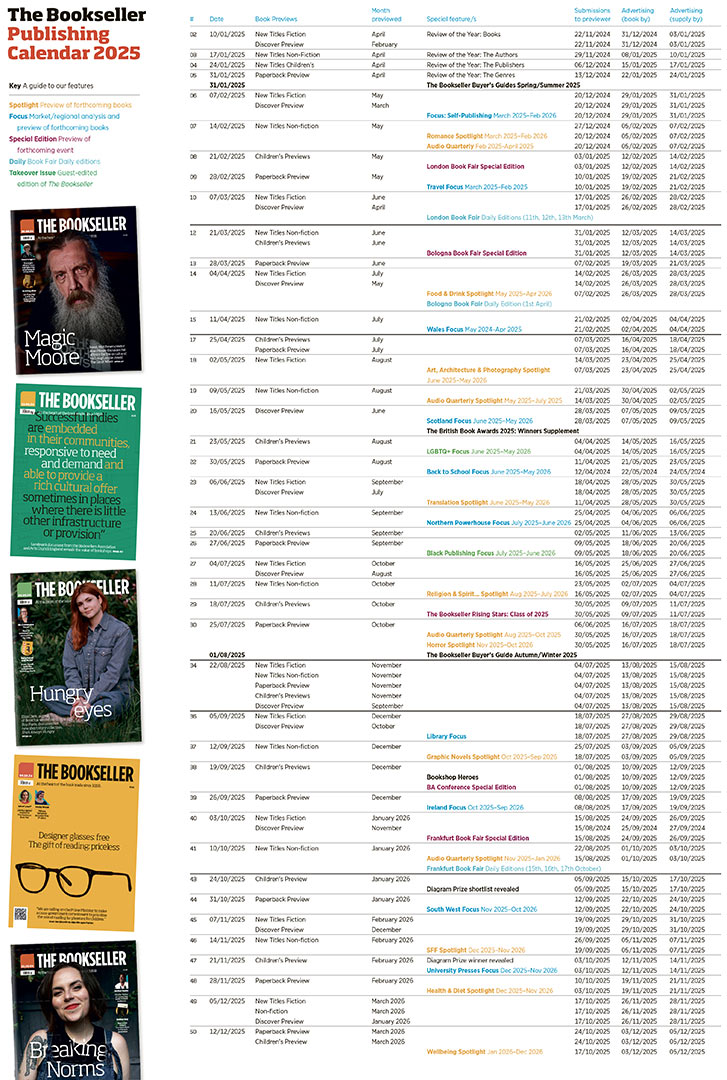You are viewing your 1 free article this month. Login to read more articles.
Starting out

This week we publish The Bookseller’s first Youth Issue, ably edited by my colleague Caroline Carpenter, focusing on the perspectives and priorities of book trade workers under 25. Valuable as the senior industry voices are, so are those of people in the foothills of their careers, and here we have an opportunity to concentrate on what that segment of our readers wants to say; our thanks to all who contributed, including those who answered The Bookseller’s survey.
Read individually, the survey responses were very varied, but the good news is that the headline stats show a strong percentage (nearly 70%) feeling “completely” or “mostly” satisfied in their current role, while close to 75% feel “completely” or “mostly” able to be their authentic self in their workplace, with many citing the supportiveness of colleagues. Perhaps counter-intuitively, given that many young people are said to be quitting the industry, a high percentage (68%) said they thought that yes, they would still be in the industry in five years’ time.
Publishing pay for junior staff has long been low, despite initiatives to improve starting salaries, but the current cost of living is twisting the knife
However, before employers feel too reassured, in answer after answer respondents overwhelmingly expressed their worries about pay, burnout and the implications of low salaries for the next few years, even among those who otherwise unequivocally love the book trade. “I really hope so, but it depends on promotion”, said one, to the question about whether they would still be in the industry in five years; another said they might be “forced to leave” by financial pressure; “I’ve put ‘yes’, but honestly, I don’t know,” said a third. “To be honest, I might need the money and it’s not like publishing is ever going to face the reality of the cost of living crisis.”
Publishing pay for junior staff has long been low, despite initiatives to improve starting salaries, but the current cost of living is twisting the knife; as many respondents point out, and as our comment writers underline, this can only have a negative impact on the diversity of the staff hired and retained. It must be a priority for the industry to make sure it is not unaffordable for a diverse cadre of talented young people to stay within it, own it and shape it, and become the leaders of tomorrow.
Salman Rushdie
World news this week was dominated by the savage attempted murder of Salman Rushdie, on stage in New York state. Rushdie’s courage in looking to resume a normal life and public engagement with the literary world, in spite of the fatwa still lurking in the background, cannot be overstated. Responding to the news, Index on Censorship chief Ruth Smeeth writes in sobering terms of the current environment for writers, saying that the threats and abuse they face is growing and the attack on the Booker winner has made the organisation “more committed now than ever to work towards creating a world where it’s not a danger to challenge or be contrary”. Index is one of many campaigning organisations, while prizes such as the IPA’s admirable Prix Voltaire and indeed The Bookseller’s Freedom to Publish Nibbie (awarded this year to HarperCollins and Arabella Pike) also shine light on the global struggle. But the attack on Rushdie has underscored, in very stark focus, the price many have paid, and are paying, to keep free speech alive.




















